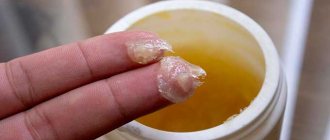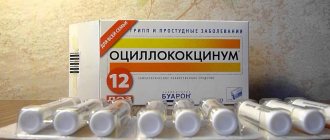The most important time for any mother is the period from birth to the baby’s first year. At this time, the newborn is completely defenseless and requires a lot of attention. Parents try to develop a convenient schedule for both the child and themselves. Sound sleep and nutrition are important factors on which the baby’s development depends.
Pediatricians have been trying to convince young mothers of the benefits of breastfeeding for many years. After all, only with mother’s milk does a newborn receive all the necessary vitamins and nutrients.
Those who have tried this feeding see its benefits and try to maintain milk production for up to a year and a half, or even more.
During this period, the mother’s body works to the limit, trying to release as many immunoglobulins as possible for the baby, and the mother’s immunity is subjected to various tests.
Inflammatory diseases in nursing mothers
During the postpartum period, the mother's body undergoes changes. The breasts become larger, secreting milk, and the pelvic organs return to normal after pregnancy and childbirth. At this time, inflammatory processes of the female genital organs are common.
They can be caused either by birth injuries or appear against the background of dysbiosis associated with cleansing the intestines before childbirth. When turning to a gynecologist, young mothers first of all want to receive high-quality treatment that does not affect the lactation process itself.
Having passed all the required tests, patients receive an appointment and are lost. After all, if the disease is complicated by a fungal or bacterial infection, the doctor may prescribe Polygynax suppositories. It is not advisable to take antibiotics during breastfeeding, but this drug contains them.
The harmful effects of antibacterial drugs on the fetus in the womb and on the child during lactation have been scientifically proven. When they enter a developing organism, they can affect the organs of hearing and vision, as well as provoke the development of allergic reactions. What to do? And is it possible to use Polygynax (suppositories) while breastfeeding?
What are Polygynax candles?
"Polygynax" is a combined antibacterial and antifungal drug. It looks like oval cream capsules with a liquid middle. Inside there is a dimethicone gel in which neomycin sulfate, polymyxin B, and nystatin are dissolved.
Each of these components has a wide range of effects on different types of bacteria, both gram-positive and gram-negative. Thanks to this, suppositories quickly and effectively eliminate the cause of inflammation and block the possibility of relapse.
The main feature of Polygynax is the ability to use the antibacterial drug topically, without the need to restore your own bacterial microflora. None of the components affects the number of lactobacilli that make up the vaginal flora.
Polygynax can be used for any type of vaginitis (inflammatory processes of the vagina), complicated by both fungal and bacterial infections. This is an excellent remedy for women suffering from recurrent vaginitis during antibiotic therapy.
Gynecologists also prescribe Polygynax as a means for sanitizing the birth canal in the prenatal period, before various surgical interventions (abortion, diathermocoagulation, installation of an intrauterine device).
Contraindications
Due to the local action of the components on the mucous membrane, the drug has almost no side effects. The only caution is sensitivity to the components of the drug and individual intolerance to medications.
But there is also a clause on the use of the drug “Polygynax” during breastfeeding and pregnancy. No studies have been conducted to confirm negative or positive effects on baby development.
Due to the presence of antibiotics in the composition, experts advise not to use Polygynax while breastfeeding. If there is a need to take the drug due to vital signs, it is used only from the second trimester of pregnancy, and during lactation it is suggested to temporarily stop breastfeeding.
Doctors say
The opinion of gynecologists is ambiguous regarding taking the drug "Polygynax" while breastfeeding. Reviews from doctors are completely different.
Some experts suggest using this drug without doubt, citing the low adsorption of active substances into the bloodstream. Regardless of the age of the newborn baby and without stopping feeding.
Others require you to stop feeding during treatment to reduce the risk of negative reactions. If you come across the second type of attending physician, the decision is yours. You can consult on this matter with the pediatrician who is observing the baby. It is safer, of course, to temporarily switch the baby to formula and express the milk in order to resume feeding after the course of treatment.
Let's weigh the pros and cons!
Many young mothers are very sensitive to the topic of breastfeeding. They follow diets to prevent the child from becoming bloated. They take vitamins and limit themselves to sunbathing. At the same time, they do not always think that by reducing the number of “contacts” of a newborn with the “big” world, they thereby provoke reduced immunity and various diseases of the gastrointestinal tract.
Having received a prescription for Polygynax from the attending physician, a nursing mother first checks the compatibility of the drug with this process. Many have tried Polygynax while breastfeeding, and the reviews have varied.
Most women, having overcome their fear, began treatment without stopping feeding. No negative effects on the child’s body were noted. Despite the fact that the baby’s age varied from two months to one and a half years.
But there are also negative reviews. Most often, this is the use of the drug “Polygynax” during pregnancy, when the woman’s body is weakened and very vulnerable.
Your doctor should decide whether you need this drug. You cannot use it on your own, especially during pregnancy or breastfeeding.
Source: https://FB.ru/article/311903/polijinaks-pri-grudnom-vskarmlivanii—polza-ili-vred
Inflammatory diseases in nursing mothers
During the postpartum period, the mother's body undergoes changes. The breasts become larger, secreting milk, and the pelvic organs return to normal after pregnancy and childbirth. At this time, inflammatory processes of the female genital organs are common.
They can be caused either by birth injuries or appear against the background of dysbiosis associated with cleansing the intestines before childbirth. When turning to a gynecologist, young mothers first of all want to receive high-quality treatment that does not affect the lactation process itself.
Having passed all the required tests, patients receive an appointment and are lost. After all, if the disease is complicated by a fungal or bacterial infection, the doctor may prescribe Polygynax suppositories. It is not advisable to take antibiotics during breastfeeding, but this drug contains them.
The harmful effects of antibacterial drugs on the fetus in the womb and on the child during lactation have been scientifically proven. When they enter a developing organism, they can affect the organs of hearing and vision, as well as provoke the development of allergic reactions. What to do? And is it possible to use Polygynax (suppositories) while breastfeeding?
DoctorHepatitis
Nursing mothers often get sick, especially with infectious and inflammatory diseases. This is explained by the fact that the immunity of a lactating woman after childbirth is weak. In addition, a lot of energy is spent on milk production. Consequently, any virus attack can have unpleasant consequences.
Often, nursing mothers experience infectious and inflammatory diseases of the reproductive system, for example, thrush. Polygynax is a medicine with a wide spectrum of action that destroys pathogens. A brief description of the drug, the possibility of use during lactation - more on this later.
Polygynax is a combination drug whose active ingredients are effective against a variety of bacteria and fungi. The topical drug is used to treat infectious and inflammatory diseases that arise as a result of vaginal dysbiosis.
Dosage form – vaginal suppositories, 6 or 12 pieces per package.
The main components of the vaginal capsule:
- Nystatin is an antifungal antibacterial agent that is effective against yeast-like fungi of the genus Candida. This medication has a negative effect on the newborn.
- Polymyxin B is an antimicrobial agent that destroys gram-negative bacteria. It almost does not penetrate into the bloodstream, but negatively affects the kidneys and hearing organs.
- Neomycin is an antibacterial drug that negatively affects gram-positive and gram-negative bacteria. It is used topically, so its concentration in the blood is low, as a result, it does not pose any particular danger to the child, but there is a risk.
- Dimethylpolysiloxane gel has a soft enveloping effect, covers the mucous membrane, stimulates cellular nutrition, preserves the structure and functions of the vagina. Thanks to this component, itching disappears, and the remaining components penetrate into the folds of the vagina.
Additional substances: hydrogenated soybean oil, macrogol 300, 1500 and ethylene glycol stearate. The list of auxiliary components includes glycerin, dimethicone, gelatin.
Polygynax is prescribed for the following infectious inflammations:
- colpitis of any origin;
- cervicitis;
- vulvitis;
- vaginitis
Polygynax is taken to prevent infectious complications after gynecological procedures:
- intrauterine diagnostic procedures;
- electrocoagulation (thermal cauterization) of cervical erosion;
- curettage (cleaning the uterus);
- before and after diathermocoagulation of erosion and the introduction of a contraceptive device;
- before abortion and childbirth.
Even with a single administration of the vaginal capsule, the effect is noticeable. The suppository dissolves, and its active substances cover the vaginal mucosa, filling all folds, eliminating itching and burning. The components of the drug act on pathogenic microorganisms, stopping their reproduction.
Polygynax is a local drug, but it has contraindications:
- first 3 months of pregnancy;
- kidney diseases;
- hypersensitivity to the components of the drug.
The drug should be used with caution in the 2nd and 3rd trimester of pregnancy and while breastfeeding. The drug is prescribed by a doctor only if the possible benefit of the drug for the mother outweighs the potential risk for the newborn. If the medicine cannot be replaced with another, safer one, then the baby is transferred to artificial nutrition.
Sometimes the drug causes side effects such as allergic eczema, itching, burning, and dryness of the affected areas of the vaginal mucosa. If you experience such symptoms, stop taking the drug and contact your gynecologist.
Before using the drug, you need to examine the vaginal microflora. Bacterial analysis will help establish a diagnosis and identify the causative agent of the disease.
The doctor limits the period of use of the drug, and the patient follows the doctor’s instructions. Otherwise, infectious agents become resistant to the action of antibacterial agents.
It is not recommended to combine treatment with Polygynax with the use of latex contraceptives. Spermicides reduce the effectiveness of vaginal capsules.
Polygynax is a local drug; the active substances penetrate into the bloodstream in small quantities and, as a result, into mother’s milk. Despite the minimal concentration of the drug in milk, it is absorbed into the body of an infant and has a toxic effect. If a breastfeeding woman has direct indications for using the drug, doctors insist on taking it during this period.
Sometimes medication in the treatment of sexually transmitted infections cannot be replaced with other drugs. In such cases, when breastfeeding, the mother should temporarily transfer the newborn to artificial nutrition. Regular expression of milk will help maintain lactation and return to natural feeding after treatment.
A nursing woman must follow the rules for taking the medication, then the concentration of active substances in the blood will be minimal, and the degree of their effect will not affect the mother’s body. The therapeutic course lasts 12 days. Vaginal suppositories are inserted into the vagina once every 24 hours; after insertion, you need to be in a horizontal position, so it is better to carry out the procedure before bed. You need to inject it deeply so that the solution does not leak out.
Thus, Polygynax is a relatively safe drug during lactation. It is strictly forbidden to self-medicate, as the consequences can be dangerous not only for the mother, but also for the child! The prescription of the drug and the determination of the treatment regimen are carried out by the attending physician after a thorough examination and diagnosis.
The most important time for any mother is the period from birth to the baby’s first year. At this time, the newborn is completely defenseless and requires a lot of attention. Parents try to develop a convenient schedule for both the child and themselves. Sound sleep and nutrition are important factors on which the baby’s development depends.
Pediatricians have been trying to convince young mothers of the benefits of breastfeeding for many years. After all, only with mother’s milk does a newborn receive all the necessary vitamins and nutrients. Those who have tried this feeding see its benefits and try to maintain milk production for up to a year and a half, or even more. During this period, the mother’s body works to the limit, trying to release as many immunoglobulins as possible for the baby, and the mother’s immunity is subjected to various tests.
During the postpartum period, the mother's body undergoes changes. The breasts become larger, secreting milk, and the pelvic organs return to normal after pregnancy and childbirth. At this time, inflammatory processes of the female genital organs are common.
They can be caused either by birth injuries or appear against the background of dysbiosis associated with cleansing the intestines before childbirth. When turning to a gynecologist, young mothers first of all want to receive high-quality treatment that does not affect the lactation process itself.
Having passed all the required tests, patients receive an appointment and are lost. After all, if the disease is complicated by a fungal or bacterial infection, the doctor may prescribe Polygynax suppositories. It is not advisable to take antibiotics during breastfeeding, but this drug contains them.
The harmful effects of antibacterial drugs on the fetus in the womb and on the child during lactation have been scientifically proven. When they enter a developing organism, they can affect the organs of hearing and vision, as well as provoke the development of allergic reactions. What to do? And is it possible to use Polygynax (suppositories) while breastfeeding?
"Polygynax" is a combined antibacterial and antifungal drug. It looks like oval cream capsules with a liquid middle. Inside there is a dimethicone gel in which neomycin sulfate, polymyxin B, and nystatin are dissolved.
Each of these components has a wide range of effects on different types of bacteria, both gram-positive and gram-negative. Thanks to this, suppositories quickly and effectively eliminate the cause of inflammation and block the possibility of relapse.
The main feature of Polygynax is the ability to use the antibacterial drug topically, without the need to restore your own bacterial microflora. None of the components affects the number of lactobacilli that make up the vaginal flora.
Polygynax can be used for any type of vaginitis (inflammatory processes of the vagina), complicated by both fungal and bacterial infections. This is an excellent remedy for women suffering from recurrent vaginitis during antibiotic therapy.
Gynecologists also prescribe Polygynax as a means for sanitizing the birth canal in the prenatal period, before various surgical interventions (abortion, diathermocoagulation, installation of an intrauterine device).
Due to the local action of the components on the mucous membrane, the drug has almost no side effects. The only caution is sensitivity to the components of the drug and individual intolerance to medications.
But there is also a clause on the use of the drug “Polygynax” during breastfeeding and pregnancy. No studies have been conducted to confirm negative or positive effects on baby development.
Due to the presence of antibiotics in the composition, experts advise not to use Polygynax while breastfeeding. If there is a need to take the drug due to vital signs, it is used only from the second trimester of pregnancy, and during lactation it is suggested to temporarily stop breastfeeding.
The opinion of gynecologists is ambiguous regarding taking the drug "Polygynax" while breastfeeding. Reviews from doctors are completely different.
Some experts suggest using this drug without doubt, citing the low adsorption of active substances into the bloodstream. Regardless of the age of the newborn baby and without stopping feeding.
Others require you to stop feeding during treatment to reduce the risk of negative reactions. If you come across the second type of attending physician, the decision is yours. You can consult on this matter with the pediatrician who is observing the baby. It is safer, of course, to temporarily switch the baby to formula and express the milk in order to resume feeding after the course of treatment.
Many young mothers are very sensitive to the topic of breastfeeding. They follow diets to prevent the child from becoming bloated. They take vitamins and limit themselves to sunbathing. At the same time, they do not always think that by reducing the number of “contacts” of a newborn with the “big” world, they thereby provoke reduced immunity and various diseases of the gastrointestinal tract.
Having received a prescription for Polygynax from the attending physician, a nursing mother first checks the compatibility of the drug with this process. Many have tried Polygynax while breastfeeding, and the reviews have varied.
Most women, having overcome their fear, began treatment without stopping feeding. No negative effects on the child’s body were noted. Despite the fact that the baby’s age varied from two months to one and a half years.
But there are also negative reviews. Most often, this is the use of the drug “Polygynax” during pregnancy, when the woman’s body is weakened and very vulnerable.
Your doctor should decide whether you need this drug. You cannot use it on your own, especially during pregnancy or breastfeeding.
After childbirth, a woman's immunity becomes weakened. Infectious and inflammatory diseases often occur. During breastfeeding, women in labor refuse to take medications. However, Polygynax may be needed during breastfeeding in various situations.
A viral attack on the reproductive system leads to serious illnesses. Polygynax is a broad-spectrum drug. The medicine will quickly rid the body of bacteria, viruses and fungi.
Is Polygynax possible during lactation? Yes, but not earlier than from the age of three months. During this period, the baby has a fairly strong intestinal flora, so the introduction of artificial formula will be easy.
The vaginal capsule contains the following components:
- nystatin against fungus, which copes well with candidiasis, but has a negative effect on the baby;
- polymyxin to kill gram-negative bacteria. It does not pass through the bloodstream, however, it has a negative effect on the hearing organs and kidneys;
- neomycin for topical use against bacteria. It does not pose a danger to the newborn, but the risk remains;
- gel for an enveloping effect on the vaginal mucosa, thanks to which itching disappears.
Additional ingredients include: soybean oil, glycerin, dimethicone and gelatin. The capabilities of the composition allow you to quickly get rid of colpitis, vulvitis, vaginitis and cervicitis. You will need Polygynax during lactation before gynecological procedures.
After the first use of the vaginal capsule, the woman notices a positive effect. When dissolved, the components of the suppository enter the folds of the vagina, eliminating itching and burning.
Polygynax for breastfeeding is prescribed only if the child is three months old, there is no kidney disease or hypersensitivity to the components of the drug. It is allowed to use the medication during breastfeeding if the benefit to the mother outweighs the risk to the newborn. When Polygynax cannot be replaced, the baby is transferred to artificial nutrition. A woman should pay attention to regular pumping for subsequent restoration of lactation.
Polygynax can cause side effects such as allergic eczema and dryness of the vaginal mucosa. If symptoms are detected, you should consult a gynecologist. Before prescribing the drug, a number of diagnostic techniques are carried out to examine the microflora of the genital organs. After examination, the causative agent of the disease is identified.
It is not recommended to mix Polygynax with latex condoms when feeding a baby. The presence of spermicidal lubricant reduces the effect of vaginal capsules on existing bacteria.
Patients must adhere to the terms of use of the drug chosen by the specialist, otherwise the infections will become resistant to the substances in the antibacterial composition.
By following the rules for taking Polygynax, the female body will receive a minimum concentration of active substances, and the degree of impact will be low. Therapy is prescribed for 12 days. Suppositories are administered once a day. After this, you need to lie down for 15 minutes.
Polygynax suppositories are considered a relatively safe drug during breastfeeding. You cannot self-medicate, otherwise the consequences will be negative for the mother and child. Only a specialist can select a regimen based on the diagnosis after a full examination.
Polygynax has a pronounced local effect. The components that make up the drug pass into the milk, causing a toxic effect on the baby. The existing substances negatively affect the formation of intestinal microflora. This causes digestive problems in infants: colic, bloating, regurgitation.
It is recommended to take Polygynax during breastfeeding in the following way:
- during treatment, do not allow the baby to suckle at the breast, giving preference to formula;
- lactation will continue with constant expression of milk;
- do not panic, because within 12 days the child will be able to do without natural feeding.
You cannot self-medicate. Polygynax is used during breastfeeding only after passing all tests, on the basis of which the duration of treatment is determined. The specialist will be able to assess the risks to the health of the newborn and correlate them with the benefits for the mother.
Young women believe that they should not use Polygynax suppositories when breastfeeding. Diseases are often caused due to fear of harming the baby’s body.
You should not neglect Polygynax for the following reasons:
- An infection detected in the mother leads to serious complications that reduce the ability to conceive again;
- the disease affects health and general well-being. The woman experiences weakness, gets tired quickly, becomes irritable;
- lack of qualified assistance leads to the development of erosion and cystitis;
- inflammatory processes will spread to the genitourinary system, ovaries
The presence of a disease in the genital area causes discomfort and affects the mood of a young woman. Unpleasant sensations can occur around the clock, reducing the enjoyment of communicating with the newborn.
The drug has proven itself in the treatment and prevention of various diseases. However, contraindications exist; they should not be neglected. Full information about the composition and effects is indicated on the packaging. The decision to use must be made by a doctor. This will avoid negative consequences for the body of mother and baby.
Vaginitis is one of the common problems accompanying pregnancy. After childbirth, this disease usually disappears. But for some women it even gets worse during lactation. The body of a nursing mother, weakened by childbirth and breastfeeding, cannot cope with the infection on its own, and in addition to constant worries about the baby, unpleasant sensations in the form of itching and burning are added, which do not allow you to fully relax and rest in your free moment. Often in such a situation there are many reasons for the appearance of vaginitis, and treatment will require not one drug, but several. A complex remedy, for example, Polygynax, becomes a salvation for women. The drug contains 3 active ingredients and helps a woman quickly and effectively solve the problem. But how safe it is for the baby is a question that worries every nursing mother who is faced with this disease.
The drug Polygynax is produced in France, the holder of the Registration Certificate for it in Russia is the Innotek International Laboratory.
Polygynax is not included in the list of Vital Essential Drugs (VED) and its price is not regulated by the state. Therefore, do not be surprised if the difference in cost at two different pharmacies is significant.
Release form of the drug: soft vaginal capsules, six or twelve pieces per package.
Polygynax contains the following active ingredients:
- nystatin;
- polymyxin B;
- neomycin.
It is better to use Polygynax at night so that you can lie down for a while
When used, the drug has a bactericidal, antifungal and antibacterial effect. Polymyxin and neomycin act on many gram-negative and gram-positive organisms (with the exception of anaerobic bacteria and streptococcus spp), nystatin affects fungi of the genus Candida. When used, Polygynax is evenly distributed throughout the vaginal mucosa, practically without being absorbed from the surface of the mucosa.
It is better to inject the drug as deeply as possible into the vagina before going to bed, since after administration it is necessary to maintain a horizontal position for some time. The treatment period with Polygynax is twelve days, and the prophylactic course is six days.
Polygynax is used for the following indication - infectious-inflammatory vaginitis.
For the purpose of prevention, the drug is used in the following cases:
- prevention of infectious complications in case of gynecological interventions;
- before childbirth;
- before intrauterine diagnostic procedures.
Before using Polygynax, it is better to consult a doctor
Despite the fact that Polygynax is practically not absorbed from the surface of the vaginal mucosa and practically does not enter the blood or breast milk, the manufacturer prescribes lactation as a contraindication in the instructions for the drug and recommends stopping breastfeeding for the period of treatment with the drug. Allergic reactions to this drug are also possible, if they occur, therapy must be discontinued. Contraindications also include the first trimester of pregnancy and kidney disease.
The manufacturer does not recommend using Polygynax while breastfeeding.
So, why doesn’t the manufacturer recommend using Polygynax while breastfeeding? It's all about the composition and possible side effects on the child when taking this drug. Nystatin negatively affects the child's health, polymyxin B has side effects on the hearing organs and kidneys, neomycin does not pose any particular danger to the baby, but the risk still exists.
You can return to natural feeding of your baby without risk to his health after treatment is completed.
What can replace Polygynax? In any case, you should not self-medicate. And before you go to buy medicine at the pharmacy, you need to take a vaginal smear so that the doctor can choose medications for you that will help cope with the problem. You need to strictly follow his instructions to avoid relapses. If it is impossible to stop taking Polygynax, then you should stop breastfeeding for the period of treatment and temporarily transfer the child to artificial feeding. To maintain lactation, regular milk expression should be used. If you strictly follow the instructions for taking the drug after stopping the course of treatment, you can return to natural feeding of the baby without risk to his health.
Now on the Internet there are a lot of different reviews and recommendations for the use of the drug Polygynax during breastfeeding, where the argument in its favor is the fact that it is practically not absorbed through the vaginal mucosa, and if the active ingredients enter the bloodstream, then in microscopic quantities . However, both the manufacturer and doctors categorically do not recommend doing this. And they have good reason for this. Therefore, we will not take responsibility and provide positive reviews about the use of this drug during breastfeeding.
Polygynax is an excellent drug for women, which has proven itself in the treatment of various vaginitis and for prophylactic use. But we must not forget that any medicine has contraindications that cannot be neglected. Polygynax also has them, for example, the period of breastfeeding. Don’t risk your baby’s health by relying only on recommendations from the Internet, for which no one is responsible. Remember that the most complete information on the drug is provided to you by the manufacturer in the instructions, and the decision to prescribe the drug is made by the doctor.
(0 votes, average: 0 out of 5)
What are Polygynax candles?
"Polygynax" is a combined antibacterial and antifungal drug. It looks like oval cream capsules with a liquid middle. Inside there is a dimethicone gel in which neomycin sulfate, polymyxin B, and nystatin are dissolved.
Each of these components has a wide range of effects on different types of bacteria, both gram-positive and gram-negative. Thanks to this, suppositories quickly and effectively eliminate the cause of inflammation and block the possibility of relapse.
The main feature of Polygynax is the ability to use the antibacterial drug topically, without the need to restore your own bacterial microflora. None of the components affects the number of lactobacilli that make up the vaginal flora.
Description of the drug
Polygynax is a drug that acts on different groups of pathogens. It is used to treat infectious and inflammatory diseases that develop as a result of an imbalance in the vaginal microflora. Polygynax is available in the form of vaginal suppositories.
The main active ingredients of the drug are:
- nystatin, which is an effective antifungal agent. Nystatin helps cope with fungi that cause candidiasis or thrush;
- neomycin is an antimicrobial agent that destroys both gram-positive and gram-negative bacteria;
- polymyxin B, which destroys gram-negative bacteria;
- dimethylpolysiloxane, which envelops the mucous membrane, improves tissue nutrition and prevents itching and burning that accompany infectious and inflammatory diseases of the genitourinary system.
In the medical literature you can find data that neomycin and polymyxin B, when administered intramuscularly, can negatively affect the kidneys and hearing. However, when applied topically, such side effects are completely excluded.
It is important for nursing mothers to know that the active components of Polygynax penetrate into the bloodstream and into breast milk, causing a toxic effect on the newborn’s body.
In some cases, doctors strongly recommend that young mothers take Polygynax
Indications
Polygynax can be used for any type of vaginitis (inflammatory processes of the vagina), complicated by both fungal and bacterial infections. This is an excellent remedy for women suffering from recurrent vaginitis during antibiotic therapy.
Gynecologists also prescribe Polygynax as a means for sanitizing the birth canal in the prenatal period, before various surgical interventions (abortion, diathermocoagulation, installation of an intrauterine device).
Contraindications
Due to the local action of the components on the mucous membrane, the drug has almost no side effects. The only caution is sensitivity to the components of the drug and individual intolerance to medications.
But there is also a clause on the use of the drug “Polygynax” during breastfeeding and pregnancy. No studies have been conducted to confirm negative or positive effects on baby development.
Due to the presence of antibiotics in the composition, experts advise not to use Polygynax while breastfeeding. If there is a need to take the drug due to vital signs, it is used only from the second trimester of pregnancy, and during lactation it is suggested to temporarily stop breastfeeding.
Mode of application
By following the rules for taking Polygynax, the female body will receive a minimum concentration of active substances, and the degree of impact will be low. Therapy is prescribed for 12 days. Suppositories are administered once a day. After this, you need to lie down for 15 minutes.
Polygynax suppositories are considered a relatively safe drug during breastfeeding. You cannot self-medicate, otherwise the consequences will be negative for the mother and child. Only a specialist can select a regimen based on the diagnosis after a full examination.
Polygynax has a pronounced local effect. The components that make up the drug pass into the milk, causing a toxic effect on the baby. The existing substances negatively affect the formation of intestinal microflora. This causes digestive problems in infants: colic, bloating, regurgitation.
It is recommended to take Polygynax during breastfeeding in the following way:
- during treatment, do not allow the baby to suckle at the breast, giving preference to formula;
- lactation will continue with constant expression of milk;
- do not panic, because within 12 days the child will be able to do without natural feeding.
You cannot self-medicate. Polygynax is used during breastfeeding only after passing all tests, on the basis of which the duration of treatment is determined. The specialist will be able to assess the risks to the health of the newborn and correlate them with the benefits for the mother.
Doctors say
The opinion of gynecologists is ambiguous regarding taking the drug "Polygynax" while breastfeeding. Reviews from doctors are completely different.
Some experts suggest using this drug without doubt, citing the low adsorption of active substances into the bloodstream. Regardless of the age of the newborn baby and without stopping feeding.
Others require you to stop feeding during treatment to reduce the risk of negative reactions. If you come across the second type of attending physician, the decision is yours. You can consult on this matter with the pediatrician who is observing the baby. It is safer, of course, to temporarily switch the baby to formula and express the milk in order to resume feeding after the course of treatment.
Let's weigh the pros and cons!
Many young mothers are very sensitive to the topic of breastfeeding. They follow diets to prevent the child from becoming bloated. They take vitamins and limit themselves to sunbathing. At the same time, they do not always think that by reducing the number of “contacts” of a newborn with the “big” world, they thereby provoke reduced immunity and various diseases of the gastrointestinal tract.
Having received a prescription for Polygynax from the attending physician, a nursing mother first checks the compatibility of the drug with this process. Many have tried Polygynax while breastfeeding, and the reviews have varied.
Most women, having overcome their fear, began treatment without stopping feeding. No negative effects on the child’s body were noted. Despite the fact that the baby’s age varied from two months to one and a half years.
But there are also negative reviews. Most often, this is the use of the drug “Polygynax” during pregnancy, when the woman’s body is weakened and very vulnerable.
Your doctor should decide whether you need this drug. You cannot use it on your own, especially during pregnancy or breastfeeding.











